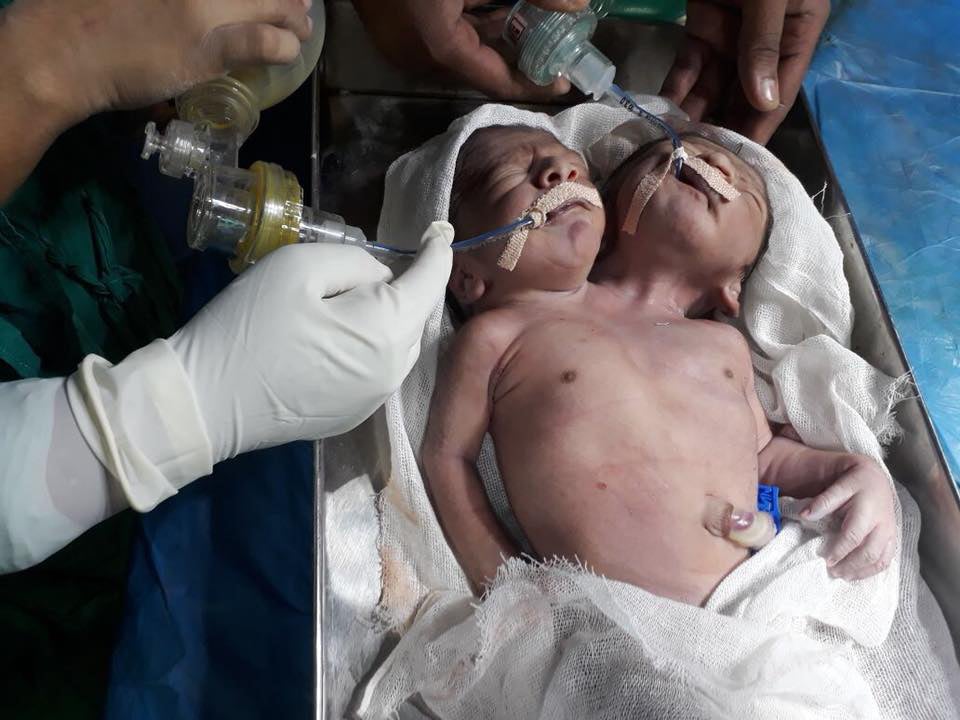'One-in-a-million' conjoined twins with two heads and same torso born in India
The boys were healthy in the womb, but doctors knew they'd have no chance of survival

Your support helps us to tell the story
From reproductive rights to climate change to Big Tech, The Independent is on the ground when the story is developing. Whether it's investigating the financials of Elon Musk's pro-Trump PAC or producing our latest documentary, 'The A Word', which shines a light on the American women fighting for reproductive rights, we know how important it is to parse out the facts from the messaging.
At such a critical moment in US history, we need reporters on the ground. Your donation allows us to keep sending journalists to speak to both sides of the story.
The Independent is trusted by Americans across the entire political spectrum. And unlike many other quality news outlets, we choose not to lock Americans out of our reporting and analysis with paywalls. We believe quality journalism should be available to everyone, paid for by those who can afford it.
Your support makes all the difference.Conjoined twins born with two heads and sharing the same torso defied the odds to be born alive – but died 24 hours later.
The two boys were placed on a ventilator at birth but doctors said their chances of survival were zero.
The unnamed babies weighed just over eight pounds and had separate lungs and hearts, but hared a liver and a pair of limbs.
Medics said their parents pleaded with them to save the newborns but doctors told the “such kids do not survive”.

It would have been impossible to separate them surgically had they survived, doctors said.
Twins born with two heads, but sharing one body, are known as dicephalic parapagus. It affects around one in a million births.
The boys were born on October 29 as Swami Ramanand Tirth hospital in Maharashtra, western India.
The 32-year-old mother asked to remain anonymous in case she was shunned by locals.
The physical issue was discovered in the 32nd week of pregnancy when the woman went for an ultrasound.
Dr Sanjay Bansode, head of the gynaecology department, said that while the babies were in healthy condition in the womb, they would have no chance of survival post-birth.
He said: “The babies were a case of dicephalic parapagus or two-headed twins, which are often stillborn.
“It is extremely rare and happens just one in a lakh [equal to one hundred thousand] and chances of dicephalic parapagus twins are of around 10 per cent of such births.
“Their condition was very critical and they were put on ventilator support. However, a day after birth they died.”
The couple already have three daughters and a son. The doctor added: “They were extremely poor and were nervous after the child's birth.
“The mother did not know she was carrying conjoined twins until the 32nd week of pregnancy. “They asked us to do anything to save the babies but such kids do not survive. There is no possibility of surgery either as they share most of their body parts and in this case had just one pair of limbs.”
Join our commenting forum
Join thought-provoking conversations, follow other Independent readers and see their replies
Comments